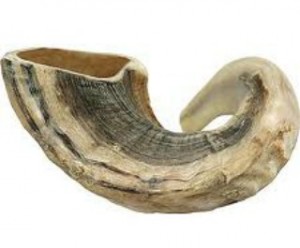 Beginning this Friday evening and continuing through Saturday night, the holiday of Yom
Kippur, the Day of Atonement, will be observed by Jews throughout the world. This year, on Rosh
Hashana, ethicist Michael Walzer reminded us
that throughout the season leading up to Yom Kippur, Jews engage in the accounting of one's soul
-cheshbon nefesh: we examine our behavior, taking an honest measure of ourselves in the year that
has passed. This self-reflection reaches its pinnacle on Yom Kippur.
Beginning this Friday evening and continuing through Saturday night, the holiday of Yom
Kippur, the Day of Atonement, will be observed by Jews throughout the world. This year, on Rosh
Hashana, ethicist Michael Walzer reminded us
that throughout the season leading up to Yom Kippur, Jews engage in the accounting of one's soul
-cheshbon nefesh: we examine our behavior, taking an honest measure of ourselves in the year that
has passed. This self-reflection reaches its pinnacle on Yom Kippur.
On the second day of Rosh Hashana, we read the Torah portion in which Abraham brings his son Isaac up to
Mount Moriah to sacrifice him. This story is part of cycle of readings that begins on the first day of Rosh
Hashana with the story of Hagar and Ishmael being cast out into the desert. Many commentaries note that the two
readings are connected - that the (near-) sacrifice of Isaac is a measure for measure punishment of Sarah and
Abraham for their treatment of Hagar and Ishmael - a "see how you feel" moment, as it were.
Yom Kippur, then, completes that cycle: on Rosh Hashana we are forced to take a hard look at our
treatment of others, and on Yom Kippur we hope that our cheshbon nefesh, our self-reflection, has
taken root, allowing us to genuinely repent for our deeds, and so to change our future behavior.
 In an unusual calendrical twist, this year Saturday is not only the Jewish holiday of Yom
Kippur, but also marks the Muslim holiday of Eid al-Adha, the Festival of the Sacrifice,
commemorating the parallel story of the Koran in which Abraham is commanded to sacrifice his son - Ishmael. The
stories of Isaac and Ishmael seem to be about sacrificing what one holds dear to the capricious commands of a
God who demands perfect obedience. But if we follow the story in the Torah through to its end, it offers
something richer: it offers a story of mending. At the end of Abraham's life, Isaac and Ishmael come together to
bury their father in peace.
In an unusual calendrical twist, this year Saturday is not only the Jewish holiday of Yom
Kippur, but also marks the Muslim holiday of Eid al-Adha, the Festival of the Sacrifice,
commemorating the parallel story of the Koran in which Abraham is commanded to sacrifice his son - Ishmael. The
stories of Isaac and Ishmael seem to be about sacrificing what one holds dear to the capricious commands of a
God who demands perfect obedience. But if we follow the story in the Torah through to its end, it offers
something richer: it offers a story of mending. At the end of Abraham's life, Isaac and Ishmael come together to
bury their father in peace.
We don't have to wait for "the end," though. We can change the story now. May this year's coincidence
of Eid al-Adha and Yom Kippur spur each of us to do cheshbon nefesh - to examine our behavior
so that we can change for the better. May it inspire us to work together for peace, now.